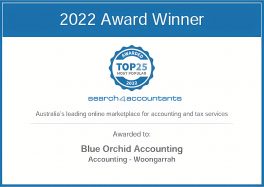As the end of the financial year approaches, property investors often find themselves navigating the complexities of taxes and deductions. This is where effective accounting strategies become invaluable. They can help maximise returns and minimise liabilities on your investment properties. This blog offers advice and insights into investment property accounting to help you prepare for the year-end tax season.
A Guide to Reducing Taxable Income on Property Investments
Investment properties can offer a range of tax deductions that, when utilised effectively, can reduce your taxable income. Understanding what you can claim is the first step in maximising your returns.
Interest on Loans
Interest accrued on loans for your investment property is often the largest deduction. Ensuring you’re claiming this correctly is important for your tax savings.
Property Management Fees
Fees paid for property management services are fully deductible. This includes any cost incurred for the administration of your property.
Maintenance and Repair Costs
Expenses for maintaining and repairing your property can be claimed. It’s important to differentiate between repairs (immediately deductible) and improvements (depreciable over time).
Insurance and Council Rates
These ongoing costs are often overlooked but are deductible expenses for your investment property.
Depreciation
Claiming depreciation on your property and its fixtures can provide significant tax benefits over the life of your investment.
Benefits of Capital Works Deductions and Depreciation Schedules
Capital works deductions and depreciation schedules are key elements in property investment accounting. They allow you to claim a deduction for the wear and tear on the structural elements and fixtures of your property over time. By accurately calculating these deductions, you can lower your taxable income each year, thereby enhancing the overall profitability of your investment.
Step-by-Step Process to Efficiently Manage Your Capital Gains Tax
Capital Gains Tax (CGT) is a tax on the profit made from selling an asset, such as an investment property and it forms a significant part of property investment accounting. It’s important to understand CGT because it can have a substantial impact on your investment’s net returns. Effectively managing CGT is important for maximising the profitability of your property investment, especially when preparing for year-end taxes. Here’s a simplified approach to handle CGT:
- Understand Your CGT Obligations: Know when and how CGT is applied to your property investment.
- Keep Accurate Records: Document purchase and sale dates, costs and any capital improvements.
- Seek Professional Advice: Consult with a professional to navigate CGT concessions and exemptions.
Essential Records Every Property Investor Should Maintain for Tax Purposes
Maintaining thorough and accurate records is important for effective property investment accounting.
Purchase and Sale Documents
These documents are important for calculating capital gains or losses.
Loan Documents
Keep records of all loan agreements and interest payments.
Rental Income and Expense Receipts
Document all income received and expenses incurred from your property.
Capital Improvement Records
Track any improvements made to the property, as these can affect your CGT.
Depreciation Reports
A professional depreciation schedule can maximise your tax deductions.
Navigating Common Tax Challenges in Property Investment
Property investment can present various tax challenges, from understanding complex legislation to effectively claiming all your entitlements. These challenges can range from navigating changing tax laws to identifying often-overlooked deductions that can impact your financial outcomes. Seeking professional guidance ensures you’re not only compliant but also maximising your investment returns.
Insights from Blue Orchid Accounting
At Blue Orchid Accounting, we provide clear and tailored guidance to help you manage your investment. Remember, effective tax management is more than just a year-end obligation; it’s a strategic approach to make your investment more efficient. If you’re looking for insights and support specific to your property investment needs, we’re here to assist. Contact us for more information.

Since 2011, Blue Orchid Accounting has been providing clients throughout the Central Coast with a comprehensive range of taxation and accounting services. We strive to provide friendly, straightforward advice, helping ensure you’re enabled to make smarter financial decisions and further safeguard your wealth.













